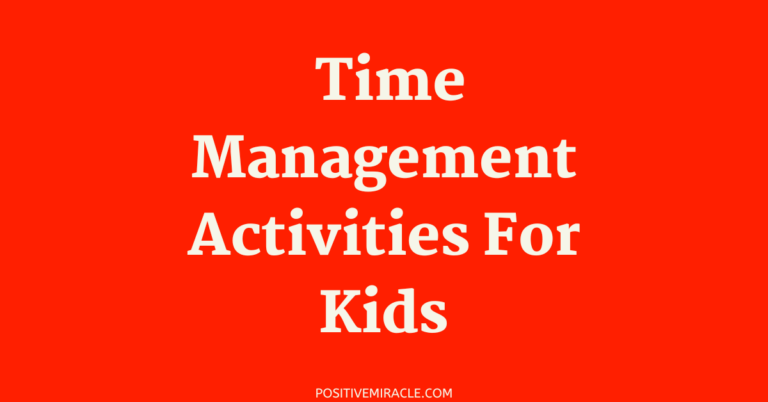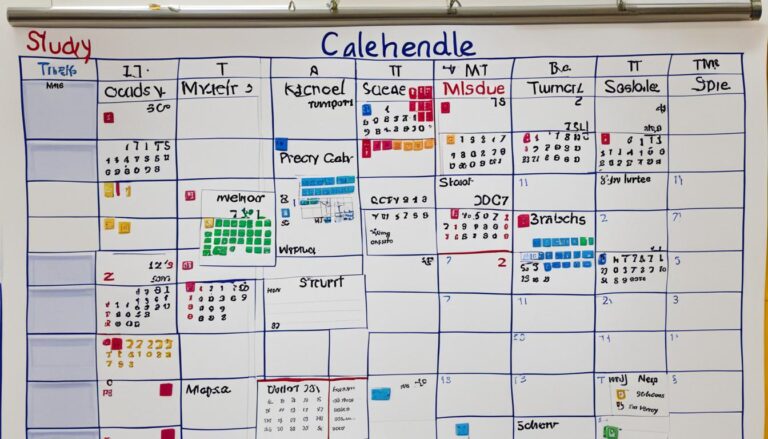Unlock Your Potential with Time Management Systems

“The bad news is time flies. The good news is you’re the pilot.” – Michael Altshuler
Time is a finite resource, yet so often we find ourselves struggling to manage it effectively. Whether it’s work tasks piling up, personal commitments eating into our free time, or simply feeling overwhelmed by the never-ending to-do list, the lack of a proper time management system can leave us feeling frustrated and unproductive.
But fear not, for there is a solution! By implementing the right time management systems and strategies, you can take control of your time, boost your productivity, and unlock your full potential. In this article, we will explore a range of effective time management techniques, from using productivity tools and time tracking software, to practicing time blocking and prioritization methods. Get ready to transform the way you manage your time and achieve your goals.
So, if you’re tired of constantly feeling like time is slipping through your fingers, it’s time to take charge and become the pilot of your own destiny. Let’s dive in and discover the power of effective time management!
Key Takeaways:
- Implementing a time management system is crucial for optimizing your productivity.
- By using productivity tools and time tracking software, you can gain better insights into how you’re spending your time.
- Time blocking techniques and prioritization methods help you allocate your time effectively and focus on high-value tasks.
- Integrating an online calendar can streamline your scheduling and improve your overall time management.
- Developing effective time management strategies allows you to make the most of your limited time and achieve your goals.
The Importance of Time Perception and Time Estimation
Humans do not have an innate sense of objective time. The concept of fixed, clock-based time is relatively recent in human history. Yet, developing a more objective sense of time is crucial for effective time management. It helps you plan and execute tasks on schedule, ensuring maximum productivity.
One powerful exercise that can significantly improve your time perception is the time estimation exercise. This exercise involves estimating how long a specific task will take and then comparing your prediction with the actual time spent. By engaging in this exercise regularly, you gain a better understanding of your time estimation abilities and learn to calibrate them accurately. It also enhances your awareness of how you allocate time for various activities.
You can further augment your time management skills by using visual time trackers. These trackers visually represent the passage of time and help you break down tasks into manageable chunks. For example, sand timers or Pomodoro Technique apps are excellent tools for dividing your work into focused intervals, with short breaks in between. By working in these concentrated segments, you enhance your ability to stay focused and utilize your time effectively.
Developing a more impressive objective sense of time, honing your time estimation skills, and utilizing visual time trackers are essential aspects of effective time management. By incorporating these strategies into your routine, you can gain control over your time and unlock your true potential. It’s time to take charge and make every second count!
Benefits of Time Perception and Time Estimation:
- Improves planning and execution of tasks
- Enhances awareness of time allocation
- Boosts accuracy in time estimation
- Increases accountability and productivity
- Enables effective task prioritization
- Reduces time wasted on underestimated tasks
Developing a more objective sense of time and improving your time estimation skills are key aspects of effective time management. Combined with visual time trackers, these strategies empower you to make the most of every moment. In the next section, we will explore effective planning and task management techniques that further enhance your time management prowess.
Effective Planning and Task Management
Coordinating and scheduling tasks within realistic timeframes require careful planning and practice. To enhance your time management skills, consider designing a personalized planner that includes sections for goals, deadlines, breaks, and extracurricular activities. This will provide you with a clear overview of your tasks and enable you to allocate time effectively.
One effective strategy is to have weekly planning sessions where you can review and plan upcoming tasks. Use this time to assess your progress, prioritize tasks, and allocate sufficient time for each task. This will help you stay organized and ensure that you are on track to meet your goals.
Reflection and adjustment sessions play a critical role in improving your time management skills. Take some time each week to reflect on your progress and identify areas for improvement. During these sessions, consider questions like:
- What went well in terms of task management?
- What challenges did you encounter?
- Did your initial time estimates align with the actual time it took to complete tasks?
Based on your reflections, adjust your planning and scheduling approach as needed. This will help you refine your time management strategies and make continuous improvements.
When coordinating tasks, it is important to prioritize them based on their importance and urgency. Set realistic deadlines for yourself to ensure that you stay on track. If you have larger tasks or projects, break them down into smaller, manageable tasks. This will make them less overwhelming and easier to schedule.
Remember, effective planning and task management are key to maximizing your productivity. By implementing these strategies, you can stay organized, meet deadlines, and make the most of your time.
| Benefits of Effective Planning and Task Management | How to Achieve Effective Planning and Task Management |
|---|---|
|
|
Developing Routines and Habits for Time Management
Routines and habits are the building blocks of effective time management. By establishing consistent morning and evening routines, you can anchor your day and align your activities with your natural energy levels. These routines provide structure, stability, and a sense of control over your time.
One effective way to enhance your time management skills is through habit tracking. By keeping track of your daily habits, you can gain self-awareness and identify patterns that may be hindering your productivity. It allows you to assess which habits are productive and which ones need improvement, empowering you to make positive changes.
Overcoming procrastination is another critical aspect of developing routines and habits. Procrastination often stems from underlying factors such as fear of failure or lack of motivation. By understanding these barriers and implementing strategies to overcome them, you can break free from the cycle of procrastination and make progress towards your goals.
Here are some strategies to help you develop productive routines and habits:
- Start with small, achievable goals: Break down your tasks into smaller, manageable steps to make them less overwhelming.
- Create a morning routine: Begin your day with activities that prepare you mentally and physically for the day ahead. This could include exercising, meditating, or planning your day.
- Establish an evening routine: Wind down before bed by engaging in relaxing activities like reading, journaling, or practicing gratitude.
- Set reminders and cues: Use alarms or visual cues to prompt you to engage in specific habits or routines.
- Track your progress: Use habit tracking apps or a simple journal to record your habits and track your progress.
By integrating these strategies into your daily life, you can gradually develop habits and routines that support effective time management. Remember, consistency is key. Stick to your routines and habits even when motivation wanes, and you’ll soon experience the benefits of optimized time management.
To further inspire you on your time management journey, here’s an image depicting a person following their morning routine:

In the next section, we’ll explore the importance of managing your energy for peak performance.
Managing Energy for Peak Performance
Time is only as valuable as the energy we give to it. To maximize productivity, it’s essential to recognize energy fluctuations throughout the day and align tasks with peak energy times. By understanding and managing your energy levels effectively, you can optimize your performance and make the most of your time.
Keep an Energy Journal
One effective way to track your energy levels and identify patterns is by keeping an energy journal. This journal allows you to reflect on how your energy fluctuates throughout the day and how it affects your productivity. By becoming aware of when your energy is highest and lowest, you can plan your tasks accordingly and ensure that you tackle important or demanding tasks during peak energy periods.
The Impact of Diet, Sleep, and Exercise
In addition to energy fluctuations throughout the day, factors such as diet, sleep, and exercise can significantly impact your energy levels. It’s essential to be mindful of how these factors affect your productivity. Maintaining a balanced diet, getting enough quality sleep, and engaging in regular exercise can contribute to higher energy levels and improved focus.
Create a Healthy Routine
Developing a healthy routine that includes regular breaks, physical activity, and time for relaxation can help you maintain consistent energy levels throughout the day. Incorporate activities like stretching, going for a walk, or practicing mindfulness to recharge your energy and stay focused.
Visualize Your Energy
Visualizing your energy levels throughout the day can provide you with a clear picture of your peak and low energy periods. Consider using a visual time tracker, such as color-coding your calendar or using a productivity app that displays energy levels alongside your tasks. This visualization can help you plan and allocate your time more effectively.
By managing your energy levels, being aware of fluctuations, and aligning tasks accordingly, you can optimize your performance and achieve peak productivity. Remember that your time is valuable, and taking care of your energy is essential to make the most of it.

Minimizing Distractions and Time Wasters
Distractions and time wasters can significantly hinder effective time management. In today’s fast-paced world, it’s easy to get sidetracked by notifications, social media, or other forms of entertainment. To make the most of your time, it is crucial to identify and manage distractions in order to create a distraction-free environment.
Start by identifying the distractions that tend to divert your attention. Is it your smartphone, email notifications, or a noisy environment? Understanding your personal distractions is the first step in combating them. Once you have identified your distractions, you can take specific actions to minimize their impact.
Consider removing devices or applications that consistently distract you during important tasks. For example, if your smartphone is a constant source of interruptions, try placing it in another room or setting it to silent mode. Creating a dedicated space for specific tasks, such as a quiet study area or a designated workspace, can also help minimize distractions and improve focus.
Remember, creating a distraction-free environment doesn’t mean completely eliminating all forms of entertainment or connection. It’s about managing distractions and setting boundaries that allow you to concentrate on your tasks without unnecessary interruptions.
By eliminating distractions and creating a focused work environment, you can enhance your productivity and make the most of your time. The key is to approach this process without judgment, recognizing that temporary removal of distractions is a means to achieve your goals and maintain positive relationships.

Creating a distraction-free environment can help you stay focused and accomplish your tasks efficiently.
Time Management as a Lifelong Skill
Time management is not just a temporary solution to handle busy schedules; it is a lifelong skill that can benefit individuals in every aspect of their lives. Whether you are a student, a professional, or a stay-at-home parent, developing effective time management skills is crucial for success.
While it is natural to improve time management skills through experience, it is essential to introduce these skills to students at a young age. By teaching and instilling the importance of time management, we can equip the younger generation with a valuable lifelong skill that will serve them well throughout their academic and professional journeys.
Developing time management skills at a young age provides students with a solid foundation for organizing their time, setting priorities, and achieving their goals. With proper guidance and the right tools, students can learn how to structure their study time efficiently, manage deadlines, and balance their academic workload. These skills not only enhance their academic performance but also prepare them for the demands of higher education and future careers.
Effective time management is more than just a means to complete tasks; it is a way of optimizing our lives. It allows us to make time for meaningful activities, personal growth, and self-care. By continuously refining and improving our time management skills, we can unlock our full potential and achieve success in various areas of life.
Benefits of Developing Time Management Skills at a Young Age:
- Improved academic performance and grades
- Reduced stress and anxiety
- Enhanced productivity and efficiency
- Improved self-discipline and self-motivation
- Better work-life balance
- Increased opportunities for personal growth and development

Comparison of Time Management Skills Development
| Starting Time Management Skills Development at a Young Age | Starting Time Management Skills Development Later in Life | |
|---|---|---|
| Benefits |
|
|
| Challenges |
|
|
Conclusion
Effective time management is the key to unlocking your full potential and achieving optimal productivity. By implementing time management systems, utilizing productivity tools, and practicing effective time management skills, you can optimize your time usage and reach your goals.
Developing routines and habits is essential for effective time management. By establishing consistent routines and tracking your habits, you can create a structured framework that maximizes your productivity and minimizes time wasted on unproductive tasks.
Managing your energy levels is another crucial aspect of time management. By understanding your energy fluctuations and aligning your tasks with your peak energy times, you can ensure that you are working at your highest level of productivity.
Minimizing distractions and creating a distraction-free environment is also vital for effective time management. By identifying your personal distractions and implementing strategies to minimize them, you can maintain focus and make the most of your valuable time.
Remember, time management is a lifelong skill that can be continually refined and improved. By nurturing your time management skills and consistently practicing effective techniques, you can consistently enhance your productivity and achieve success in all areas of your life. So, embrace the power of effective time management and unlock your true potential!






